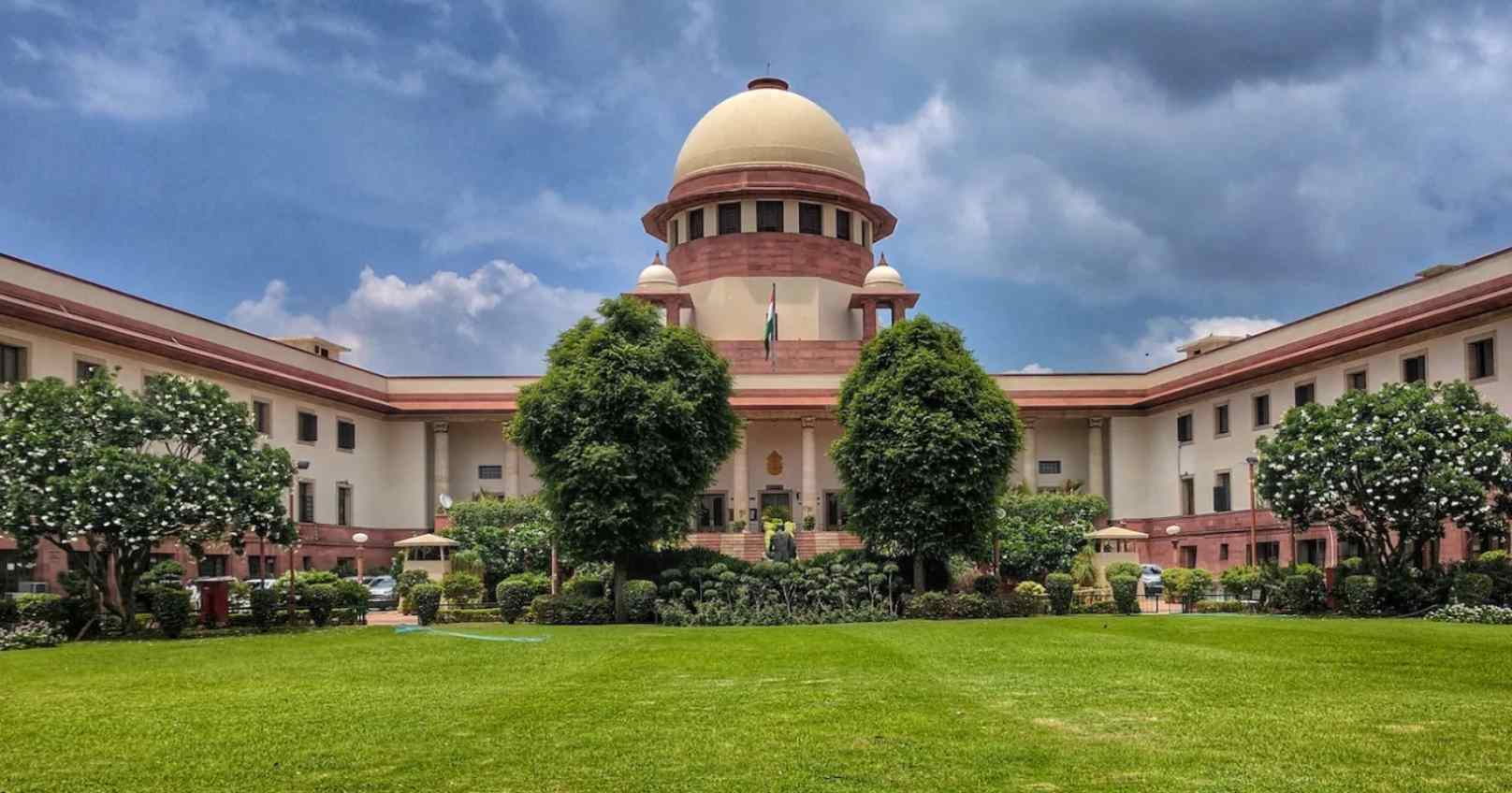A Failed Experiment: NOTA
Nearly a decade since its inception, NOTA stands as a failed experiment in Indian democracy, failing to fulfill its pledge of empowering voters and ensuring accountability
07-05-2024Nearly a decade since its inception, NOTA stands as a failed experiment in Indian democracy, failing to fulfill its pledge of empowering voters and ensuring accountability
07-05-2024The ideal method to choose elected representative for a government is through elections, which are the most dynamic type of democracy. More than 50 countries, or about half of the world's population, will be voting this year, making it critical for democracy. In an extremely volatile world, this is important for taking new steps to strengthen the discourse of civilization and inclusive development narratives in all spheres of human endeavours, including economic growth, sustainable development, accessible, high-quality healthcare and education, mitigating climate change, using emerging technologies, human rights, territorial integrity, international relations, and peace. India, often referred to as the "mother of democracy," is one of the biggest democracies.
In the vibrant tapestry of Indian democracy, one seemingly innovative addition was the introduction of the "None of the Above" (NOTA) option on ballot papers in 2013. It was hailed as a landmark step, offering voters the right to reject all candidates contesting in an election. However, nearly a decade since its inception, NOTA stands as a failed experiment in Indian democracy, failing to deliver on its promise of empowering voters and fostering accountability.
The genesis of NOTA can be traced back to a 2009 judgment by the Supreme Court of India in the case of People's Union for Civil Liberties (PUCL) vs. Union of India. The apex court recognized the right of voters to reject all candidates contesting in an election, stating that the option of NOTA should be provided on electronic voting machines (EVMs) to uphold the principle of free and fair elections.
The introduction of NOTA was initially viewed as a progressive move, giving voters a legitimate means to express their dissatisfaction with the available choices. It was seen as a mechanism to encourage political parties to field more credible candidates and promote greater accountability in the electoral process. However, the reality has fallen short of these expectations.
One of the fundamental flaws of NOTA lies in its symbolic nature. While it allows voters to register their discontent, it does not have any substantive impact on the outcome of the election. Even if the majority of voters choose the NOTA option, the candidate with the highest number of votes still emerges victorious. This renders NOTA essentially toothless, devoid of any real consequence.
Moreover, the introduction of NOTA has not led to any significant changes in the behaviour of political parties or candidates. Rather than prompting parties to nominate better candidates, NOTA has often been used as a tool by voters to vent their frustration without actively engaging in the electoral process. This has resulted in a sense of disillusionment among voters, who feel that their voices are not being heard.
One of the best pieces of voting advice has come from Singaporean doctor Paul Tambyah: “Voting is not a marriage. It is public transport. You are not waiting for ‘the one’… You are getting on the bus. And if there is not one going exactly to your destination, you do not stay home and sulk. You take the one that is going closest to where you want to be.” The message is loud and clear: the best option is not to abstain but to elect the candidate with a policy orientation most closely aligned to your own.
Another issue with NOTA is its limited impact on voter turnout. While proponents argued that it would encourage greater participation by providing an alternative for disenchanted voters, the empirical evidence suggests otherwise. In the various elections held since the introduction of NOTA, voter turnout has remained largely unchanged, indicating that the presence of NOTA has not significantly influenced voter behaviour.
Furthermore, the implementation of NOTA has been marred by logistical challenges and confusion. In many instances, voters have reported difficulties in locating the NOTA option on the ballot paper or understanding its implications. This has led to a lack of awareness and understanding about NOTA among the electorate, further undermining its effectiveness as a tool for political expression.
Perhaps the most significant criticism of NOTA is its failure to address the underlying issues plaguing Indian democracy, such as corruption, criminalization of politics, and lack of transparency. While NOTA provides an avenue for voters to express their dissatisfaction, it does little to address the root causes of voter apathy and disillusionment.
The Supreme Court on April 26 issued notice on a petition seeking a direction that an election must be declared as "null and void" if maximum votes from the constituency are polled for "None of The Above" (NOTA) and a fresh election should be held for the constituency. The petitioner also sought a direction that the same candidates, who lost to NOTA, should be barred from contesting the bye-election which is held after the cancellation of the first election where NOTA got majority vote Further, there should be proper publicity for NOTA as a "fictional candidate." The petitioner sought directions to the Election Commission of India (ECI) to frame appropriate rules in this regard.
A bench comprising Chief Justice of India DY Chandrachud, Justice JB Pardiwala and Manoj Misra agreed to consider the issues raised by petitioner Shiv Khera. NOTA was introduced in the Electronic Voting Machines following a direction issued by the Supreme Court in 2013 in a PIL filed by the Peoples Union for Civil Liberties (PUCL). NOTA gives the option to the voter to reject all candidates as unsatisfactory. However, as per the existing law, there is no legal consequence if NOTA gets the majority of the votes, in such an eventuality the next candidate will be declared as winner.
Legal Luminary Senior Advocate Gopal Sankaranarayanan, appearing for the petitioner in the same case on April 26, cited the recent example of the Surat constituency, where the BJP candidate was declared the winner without any election as the nomination of the Congress candidate got rejected and other candidates withdrew their nominations. Even if there is only one candidate, there should be an election as the voter should have the option to vote for NOTA. "In Surat where nobody else has appeared, they are forced to go with whoever the candidate is."
Deprived of a candidate to contest the May 13 Lok Sabha polls – following the withdrawal of papers by its official nominee and rejection of papers of its “substitute” candidate – the biggest opposition political party of India Indian National Congress Madhya Pradesh Unit State President Jitu Patwari has decided to appeal to people to press the None of the Above (NOTA) option in Indore parliamentary constituency.
Vivekananda, for instance, said:
“Several dangers are in the way and one is that of the extreme conception that we are the people in the world. With all my love for India and with all my patriotism, and veneration for the ancients, I cannot but think that we have to learn many things from other nations. We must be always ready to sit at the feet of all, for mark you, every one can teach us great lessons.”
In light of these shortcomings, there have been calls for reforming or even abolishing NOTA altogether. Critics argue that NOTA serves no practical purpose and only adds complexity to the electoral process without delivering any tangible benefits. Instead, they advocate for more substantive reforms aimed at strengthening democratic institutions and enhancing political accountability.
In conclusion, 2024 is a particularly interesting year for this discussion. India is over 75 years into life as a constitutional democracy, and enough markers – social, political, economic – exist to examine whether our constitutional promises have been sufficiently secured and upheld for all our people. NOTA stands as a failed experiment in Indian democracy. Despite its noble intentions, NOTA has proven to be a hollow gesture, offering voters little more than a symbolic means of expressing their discontent. To truly empower voters and foster accountability in the electoral process, India must look beyond NOTA and focus on implementing meaningful reforms that address the systemic challenges facing its democracy.


As AI-generated art gains popularity, especially through tools that mimic Studio Ghibli’s iconic s
Read More
India’s fintech Self-Regulatory Organisations (SROs) are being reimagined as key policy influencer
Read More
The Supreme Court's recent ruling on gubernatorial assent in the Tamil Nadu case reaffirms constitut
Read More